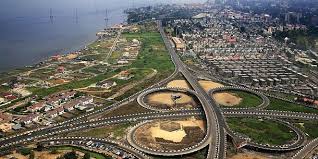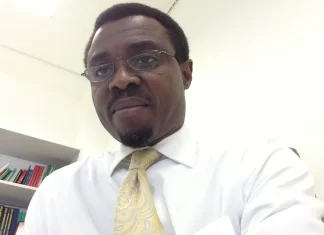The totality of socially transmitted behaviour patterns, arts, beliefs, institutions, and all other products of human work and thought is what is known as culture.
Culture is learned and shared within social groups and is transmitted by non-genetic means but generally through society.
 It is then little wonder why people often say that they are fast losing their cultural heritage because they have failed to transmit from generation to generation what was bequeathed to them by their fore-fathers.
It is then little wonder why people often say that they are fast losing their cultural heritage because they have failed to transmit from generation to generation what was bequeathed to them by their fore-fathers.
Nowadays, it is a common knowledge that most indigenous languages in Nigeria are going extinct and the rich culture of most people no longer practiced, thus denying them their identity, that is, their peculiar characteristics and knowledge, including religion, cuisine, social habits, music and arts that distinguishes them as a particular group.
The predicament of not sustaining a people’s culture has also denied them social, economic and development benefits that usually accrue from that and often left the youth of such societies to thrive in vices.
No wonder we hear nowadays of criminals selling their communities’ deities made of enthralling art works to foreign art connoisseurs and museums that in turn sell them for mouth-watering sums.
Historians and archaeologists have shown from pottery works they excavated came from as they were identified with a people from a geographical location.
Even where such works were repatriated, it is at no small cost to the Federal Government and apparently, it is a depreciation of the nation’s revenue.
The culture of the people of South-West has in its fold the traditional attires, “Adire’’ and “Aso Oke’’ which have gained international recognition. Such have helped the people to, not only eke out a leaving, but has helped them to earn foreign exchange.
The list of cultural artefacts that could earn revenue for a people is endless but suffice it to say that people can substantially survive economically if culture is adequately promoted.
To salvage the situation, the Lagos State Council for Arts and Culture (LSCAC) has embarked on robust programmes that will ensure that the rich culture of the state and indeed of Nigeria, is not only revived but practised and recognised beyond the shores of the country.
Such an effort definitely is to ensure that all stakeholders are made to undertake their roles in propagating the culture of the people of the state which is made up of people of diverse dialects.
The Director of the council, Mrs Saidat Otulana, told the News Agency of Nigeria (NAN) that LSCAC has“Inter-Countries Cultural
Exchange Programmes’’ and plans a Hall of Fame where those who were instrumental to the development and promotion of culture in the state would be honoured irrespective of whether they are indigenes or not.
The council also plans to revive the Orlando Martins Award Trust Fund, established in 1988 but which was now moribund and indeed all the moribund celebration of heroes and heroines in the state.
Otulana said that will be the first step towards reviving the culture of the people and acculturation to get the family to assume its role of proper children’s upbringing.
According to her, parents are needed to expose their children to indigenous cultures and languages to promote Nigerian cultural heritage.
Otulana lamented that parents had been carried away by western language and culture, thereby neglecting the Nigerian indigenous culture.
“Parents are the first contact a child comes across on earth and they are saddled with the responsibility of exposing the child to their indigenous languages before the English language.
“Acculturation enables an individual to adopt the attitudes, values, customs, beliefs and behaviours of a new culture.
“The wisdom of every clan is embedded in their language, culture and tradition.
“An Igbo woman who is married to a Yoruba man can put their children through the two languages and cultures, while such children are exposed to English language in schools.
“A little child could cope with learning three languages at a go; therefore, parents should speak to their children in their indigenous
languages to be able to transmit the values cherished in their cultures.
“Children learn better through what they hear and see, this makes it easier for them to pick up the language which is spoken and attitude which is exhibited,’’ she says.
Otulana says that that if children are well groomed in their culture, they will be adequately empowered socio-economically to fend for themselves and shun vices, leaving society to be at peace.
The director notes that foreigners are now so much in love with the Nigeria’s diverse culture to an extent where they practised it.
“You will find most Europeans wearing Iro and Buba as opposed to their jeans and top.
“Most of them prefer African cuisine to the western ones, as the Igbo are known to be good cooks who have various soup ingredients.
“They have equally taken after our usual hairstyles — braids and African weaving pattern. Whoever travels abroad and can braid, will become rich in few days because they love braids more than their weave-on,’’ she adds. All these can create wealth for the people.
Otulana says that parents, teachers and every individual in the society have roles to play in enhancing the Nigerian indigenous
culture.
To further promote Nigerian culture overseas, the director disclosed that the council’s “Inter-Countries Cultural Exchange Programmes’’ have yielded positive results for the state and the country.
According to her, the council has cultural exchange programmes with Venezuela, Cuba, Ghana, India and others the agreement of which was reached when the council projected Nigeria’s culture to them.
“Nigeria’s cultures are envied by most of these foreign countries we visited between 2010 and 2014.
“We were there to project our arts, crafts, cuisine, drumming, tie and dye, beading and lots more to these countries and they readily accepted our rich culture and arts,’’ Otulana said.
“After the visit, we still received letters of invitation from Venezuela and India; they are still enthusiastic to learn more of our culture.
“We have a very rich culture which they value more than we do and then, I observed that Venezuela and India have similar cultural element with us.’’
The director said she noticed that in those countries the women, especially cherished their cultural values, language and mode of dressing more than the foreign ones.
Otulana then, urged Nigerian women to uphold Nigerian culture by shaping their children through life in the knowledge and practice of their culture as it strengthened peace, unity and created a sense of belonging in individuals in the society.
She also disclosed that the council would host a Hall of Fame night in the last quarter of the year to immortalise past heroes who were instrumental to the development of state.
The director added that the contributions and achievements of everyone to be honoured at the night would be engraved on their burst for future reference.
According to her, among heroes celebrated in the past was Orlando Martins Award Trust Fund, established in 1988 but which, she said, was now moribund.
She says the council plans to revive all the moribund celebration of heroes and heroines at the night and include some non-indigenes on the list of those to be honoured, because they had also contributed to the growth of the state in the past.
Contributing, Mr Ferdinand Anikwe, the Director-General of Centre for Black and African Arts and Civilisation (CBAAC), says that most Nigerians suffered inferiority complex exhibiting their culture.
He notes that women were too busy and feel too shy to speak their indigenous languages to their children, leaving their children with little or no knowledge of their rich heritage and the preference for western culture and values.
“I know of a particular woman who told me sometimes back that indigenous languages were only meant for individuals in the villages and not people in the cities.
“’People are so engrossed with civilisation that they only find the western culture more interesting than Nigerians.
“The gradual extinction of our language and cultural practices should be traced to mothers who had refused to groom culture in their children,’’ Anikwe said.
He lauded the Osun State Government’s efforts at encouraging students to learn indigenous languages from primary through secondary schools.
“If this could be spread across every state of the federation, we will record some progress in the promotion of our culture,’’ he said.
For Mr Louis Eriomala, the Director, National Institute for Cultural Orientation (NICO), Lagos State Office, language is important but when it dies, the people stop existing.
“The existence of a particular language depends on its usage, it is a symbol of identity for a group of people.
“We all need to protect the languages so that we can keep existing and projecting it to the outside world.
Eriomala notes that children are not reckoning with the traditional, dances and music, rather they have embraced hip-hop and other western dances.
“These children should be re-orientated as regards the benefit in projecting our culture and creating our identity.’’
“Nigerians are known to have fantastic and decent dress sense, but the introduction of western culture has made most of our youths indecent.
“Our culture naturally instils morals in us, men now `sag’ their trousers, while women dress half naked and there is general lack of respect for people and institutions.
“These practices do not present us in good light in public.’’













